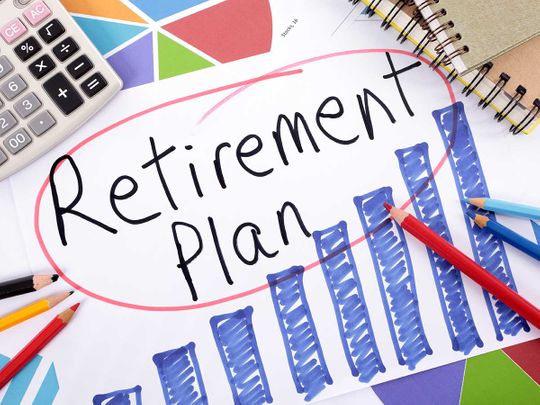
Retirement is something most of us don’t think about. But if you want a good quality life post retirement, then you must start planning for it right from a young age.
There is a large working population of expats in the UAE, and it is definitely important for them to make sound financial decisions to live a financially independent life post-retirement. Though for expats who are far away from home, planning finances optimally and making room for a post-retirement income is challenging. But it can’t be neglected.
Most expats don’t stay back after their employment tenure and move abroad post retirement from the UAE. So the working period is mostly a limited number of years. While working in the UAE, expats must make sure that they are making the right use of their income i.e. having emergency funds, which will be a saviour during job loss, plan for investments/savings in order to meet mid-term financial goals or kids’ education. And along with these, your financial planning must include retirement as well.
How to allocate your income
- Set aside money for emergency funds, which will be a saviour during a job loss
- Plan for investments/savings in order to meet mid-term financial goals or kids’ education
- Also plan for your retirement
Expat workers in the UAE are not provided pension funds. They are eligible for end-of-service benefits which may not suffice as retirement funds when the standard of living is considered. Hence, expat workers must plan by themselves for retirement through wealth growing options.
Savings or investments?
You can achieve a financially independent life post-retirement only when there is enough income flow every month. Also, post-retirement, a steady flow of income is feasible if you have investments or savings.
Though both savings and investments make your wealth grow, there can be times where only either of the options can be considered.
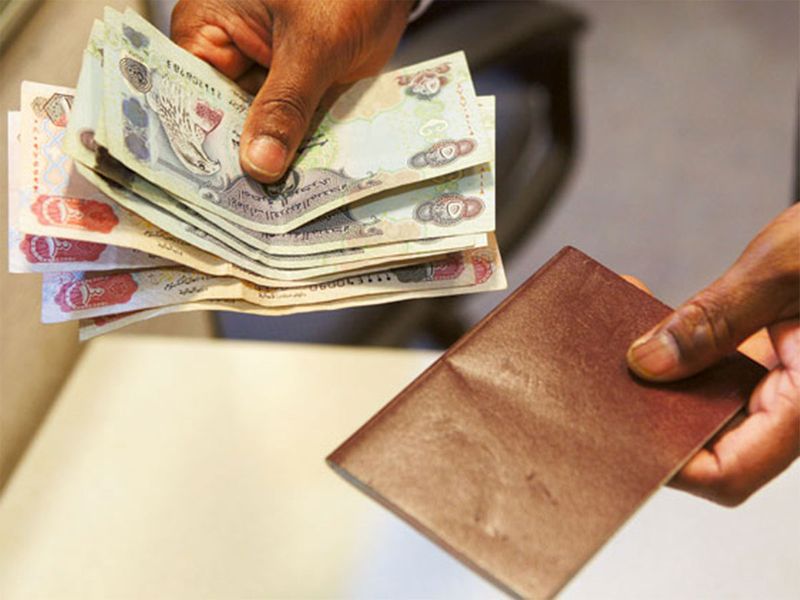
Savings cover your short-term goals - like a vacation, loan payments or even during emergencies like job loss, medical bills, etc. It will provide the convenience of obtaining the funds effortlessly whenever required. However, savings cannot make your money grow or generate a monthly income to fulfill your post-retirement needs. As a retirement plan is a long-term goal where you will need money to manage basic expenses, healthcare costs, etc., it is ideal to consider an investment that generates a decent RoI (Return on Investment).
Investment diversification
Once a significant amount of money is saved (not disturbing emergency funds), you can use it to invest. There are several investment options available in the market and choosing amongst them depends on your risk tolerance and financial goals. It’s said that risk and returns go hand in hand. Once a wise man said, “Don’t put all your eggs in one basket”, which suggests, in order to avoid the high-risk paths with your hard-earned money, you can consider diversifying your money into various portfolios, which will reduce the risk factor and earn good returns while keeping your portfolio safe.

In order to avoid the high-risk paths with your hard-earned money, you can consider diversifying your money into various portfolios
Investing in the UAE
When you are residing in the UAE, you tend to invest in the UAE itself. Expats are very well eligible to invest in the UAE irrespective of their nationality. In fact, the UAE is a business-friendly destination for many investors. Also, the taxes in the UAE are usually less when compared to their home countries for most expats, which makes it one of the best regions for investment.
Investing in foreign countries
Investment doesn’t restrict investors considering their residential status or nationality. An investor gets an opportunity to invest in other regions like Singapore, Japan, Cayman Island, Isle of Man, Switzerland, etc., which are some of the best investment destinations of the world. Similar to any other region, you have access to international banks, investment firms, interactive brokers (in the USA), etc. However, it is important for an investor to do his homework and get expert advice about the investment avenue, size and type of the platform and also note the eligibility criteria to invest.

An investor must check the pros and cons before considering investing in foreign countries. The biggest advantage that most investors claim is taxation. Foreign investors get tax benefits that attract investors and make them invest more in their region. Security and asset protection are other advantages.
When considering the cons, the cost of investment is the most significant one. There are several legal fees levied with mandatory eligibility criteria to set up an offshore account and start foreign investments. Further, entering the international investment market can be complicated and most investors need the help of a financial advisor with good knowledge of the market.
Irrespective of the country you invest in, the currency is another major concern. Though investing in a foreign country without an offshore account is not possible, you must check the currency exchange trends and understand risk management techniques to overcome any such losses due to forex volatility.
Pros of foreign investment
- Tax benefits
- Security of investment
- Asset protection
Cons of foreign investment
- Cost of investment
- Currency volatility
- Complicated nature of investment; need for a financial advisor
Investing in your home country
Budding investors prefer to invest in their home countries rather than in some foreign country. They take comfort in investing in something they are familiar with. Though a home country bias is usually not recommended since it restricts the geographical diversification of the investments, it is finally the investor’s decision. Investing in your home country usually involves lesser paperwork and legal formalities.
For example, if an Indian expat wants to invest in the National Pension Scheme in India, they can do it by considering the eligibility (it is available only to Indian citizens), returns, forex market, risk profile, etc.
Also, if an American expat wants to invest in the US stock market, they can invest with the help of an investment broker and need an active bank account in the USA.

If you are from the UK, you can consider ISA (Individual Savings Account). But only UK residents are eligible to open and maintain the ISA. If you move out of the UK, you can still hold the account but can’t invest in it anymore. Once you are back in the UK, you can resume the investment.
Filipinos have an investment option called Unit Investment Trust Funds (UITFs), Retail Treasury Bonds (RTBs), SSS Flexi Fund, etc., back in their home country.
Investment options
1) Real estate
One of the oldest and most trusted forms of investments is investing in real estate. Investing in a property is a simple and well-known idea. However, as an expat, before considering the property investment option, one thing you must consider is - where would you like to retire?
So, if you are an Indian and would like to retire in India, then you must consider buying a property back in India. This way, you can either rent out a property and expect a regular income post-retirement, or can live on the same property without rental costs.
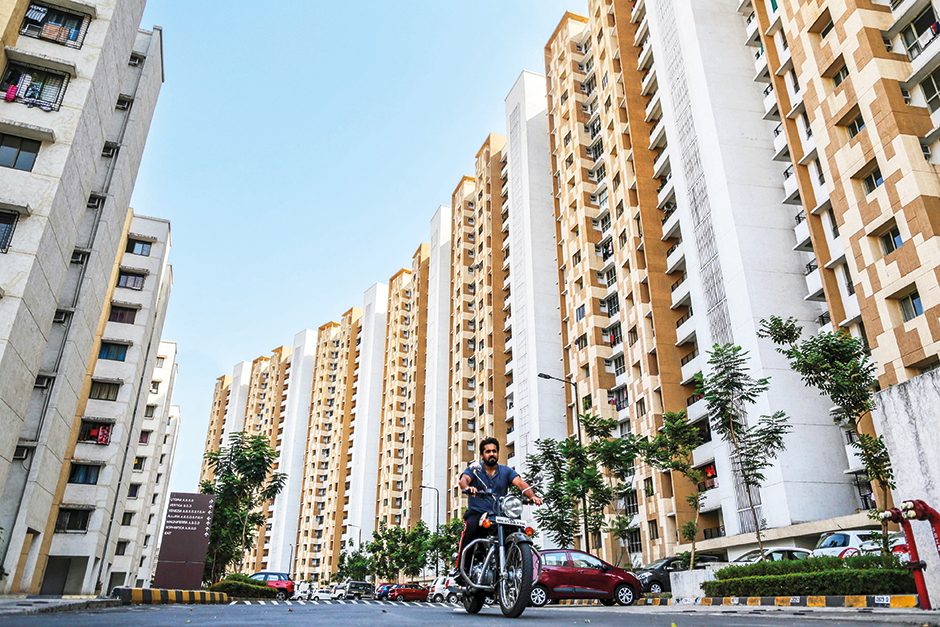
But one point to be noted here is that real estate is a high-value investment option. Though you get a mortgage loan to afford a house, you must have some money arranged prior, as the down payment, and also ensure that you clear the loan before you retire to make it a profitable post-retirement investment.
2) Bank fixed deposits or term deposits
A fixed deposit is also a popular investment option. This is one of the best, easiest and secured long-term investment options where banks hold your investment for a particular time and pay interest on it. Fixed deposits can be considered anywhere irrespective of your location.
However, the RoI of the deposit needs some thinking. The returns generated on the deposits is quite less when compared to other investment avenues. For example, Dh600 on Dh30,000 deposit over a period of five years or so. And when the inflation rate is considered, your money in the deposits does not grow much. When the returns are noteworthy, the time invested in this portfolio can also be a loss. But on a positive note, when the risk factor is compared, a Fixed Deposit is a secure channel. Hence, it is wise to consider fixed deposits as an investment diversification option.

Stocks
Stocks are well-considered investment options to create wealth. It is a long-term investment option that grows your money with time and provides handsome returns. Expats can invest in the stock market in their home country and in the UAE as well.
Usually, the process of investment is that you send your money to the broker along with your choice of stocks and the broker invests on your behalf. It is recommended to tie up with a stockbroker with a good trading platform where you can track your stocks regularly or even buy/sell yourself.
The returns on stocks are volatile. Hence, before considering this option, you must have deep knowledge about the stock market and of the particular stock you are acquiring and investing accordingly. Apart from stocks, you can also understand an ETF (Exchange Traded Fund), where different stocks, bonds, funds, etc., assets are combined in a basket that can be bought with the help of a broker. It offers the benefit of a diversified portfolio (like a mutual fund) and the flexibility of trading (like a stock).
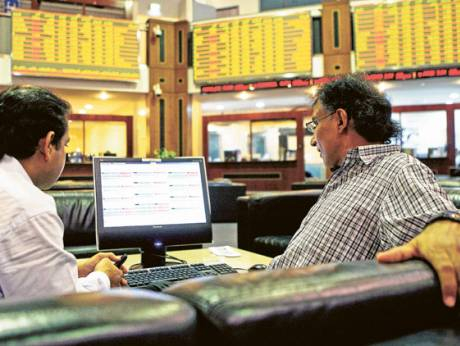
Pension Scheme
Most countries offer a pension scheme to their citizens. As an expat, you can invest in the pension scheme of your home country (provided you are eligible).
For example, the government of India offers the National Pension Scheme, which provides pension to retirees. You can invest a certain amount of money every financial year and withdraw 60 per cent of the money on maturity while using the other 40 per cent to purchase an annuity for post-retirement. So this offers reasonable returns to keep your retirement life financially stress-free.

Mutual Funds
Mutual funds are one of the best long-term investment options. Hence, they can be an ideal investment option for generating retirement funds. Mutual funds can offer high returns over the long-term. The capital appreciates by the time you retire and provides ample advantages. You have the option of investing in a fund that matches your risk preference and investment horizon. Remember, the general rule of investing always applies: Higher risk = Higher possible returns. You can start with a small amount and once you tend to understand the concept, you can increase your investment gradually.

Gold
Everyone is aware that the UAE is known as the Land of Gold. Apart from gold being an accessory, it is also a good investment option. The value of this yellow metal appreciates over time and can provide decent returns when financial assistance is required.
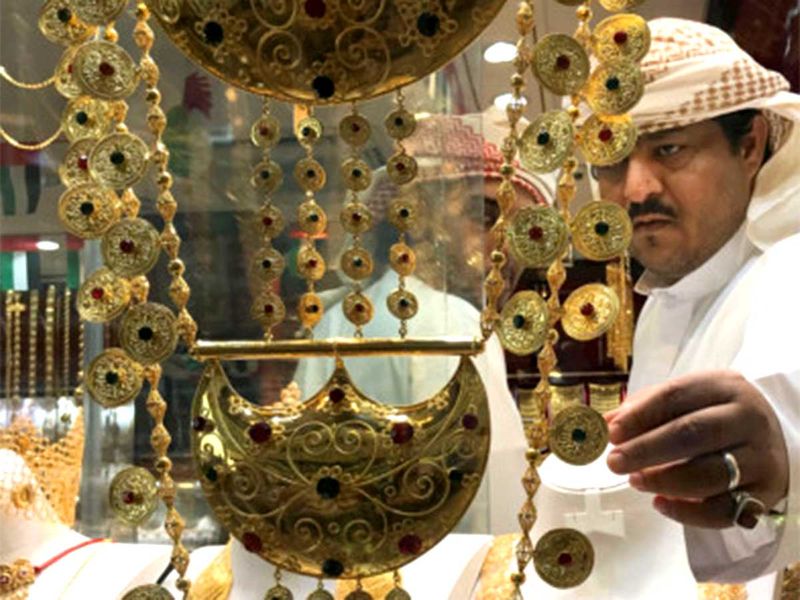
What is the right age to start saving for retirement funds?
Usually, it is recommended to start investing as early as possible, that is, like in the 20s when you just start earning. This advice is backed by many reasons:
● You may not have many responsibilities when you are younger like kids or education. As you grow older, it can be difficult to put some money aside for retirement savings as you may have expenses like home mortgage installments.
● A person in his 20s will have a high-risk tolerance when compared to the older lot, say, above 40. This is because younger people will have time to recover if any losses occur. If you invest late, you need to consider low-risk avenues and also the investment capital needs to be more in order to get decent post-retirement monthly income.
● As you will have around 40 years (taking retirement age as 60 years) to retire, your investment will have a good time to grow.
● If required, you can even retire earlier than the ideal retirement age of 60.

Important aspects to consider prior the investment for retirement funds
Retirement age - This is the first and foremost factor to consider. Though the ideal retirement age is around 60, some would like to retire before or after that. Considering the time left for your retirement, you must choose your investment option wisely. If you are nearing retirement, say you have five to 10 years before you retire, then you need to consider investment options like fixed deposits. If you have a longer investment horizon, then you can think of options like stocks and mutual funds that appreciate over time.
Retirement fund required - You must calculate and understand how much money you need to live your post-retirement life peacefully. Once you realise this by taking inflation and rising healthcare costs into account, it will be easy to understand which investment avenue is best suited to you. Usually, it is said that a person needs 70 to 80 per cent of their pre-retirement income to maintain a similar standard of living. However, this does not include inflation. Due to inflation, the cost of living might increase, which means the amount you are planning to earn post-retirement may not be sufficient. As per your current standard of living, If you need Dh15,000 (per month) post-retirement, then add 3 to 4 per cent of the amount and plan accordingly.
70 %
Of pre-retirement income will be needed to sustain yourself once you retire
Other than inflation, you must also consider taxes, else it can give a wrong picture of the entire retirement fund. The tax brackets depend upon the investment and the investment location. Hence, be prepared for that as well. Since economic conditions are volatile and sometimes unpredictable, your investments may appreciate or depreciate with time. A clear study of investment options and planning about it before investing will be helpful.
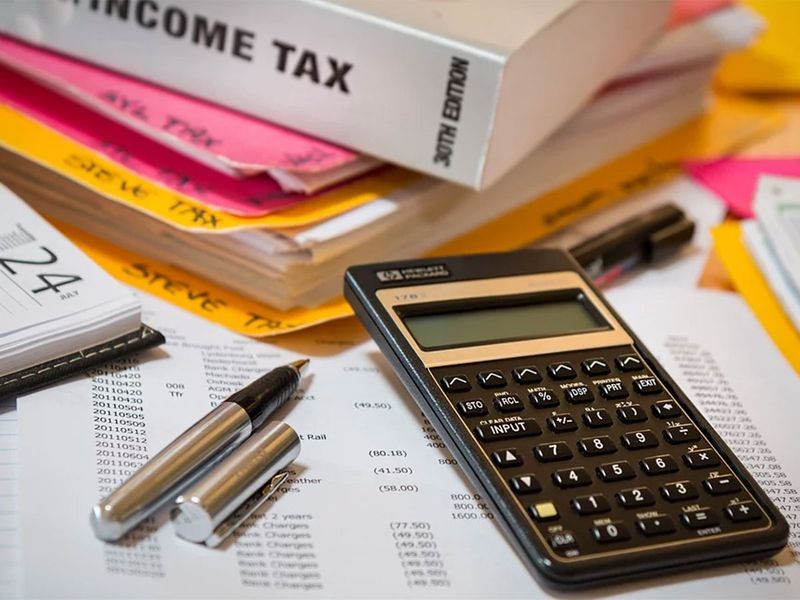
So having all these factors in mind, you must analyse the retirement fund amount. You can consult a financial planner who can understand your needs and make you achieve your financial goals.
Stable post-retirement income - Once you retire, there won’t be any income-generating sources other than through the investments you made during your younger days. Hence, instead of expecting higher return options, plan for stable returns that can generate monthly income constantly.
Risk factors - While picking an investment portfolio, you should understand the risks involved. Investing all your funds with a high-risk avenue can backfire. But the risk tolerance depends on the investor’s age as well. When you are near retirement, you don’t want to take any risk with your hard-earned money, and cannot withstand high risks, so you tend to pick the low-risk investment avenues. Finally, you tend to invest in low-risk investments like fixed deposits. Investments like this may not generate expected monthly profit that can help you live a decent financial life. Therefore when you have at least 25-30 years for your retirement, it is definitely plenty of time where you can choose long-term investment options and even if any losses incur you can put up with it. Therefore, analyse the market, take your age into consideration and pick the right investment avenue.

RoI - The Return on Investments (RoI) can either be volatile or fixed. Fixed deposits are the best example of a fixed RoI where the investor knows how much returns will be generated at the end of the tenure. However, with mutual funds, stocks, gold and real estate, the profit cannot be predicted accurately. Taking the RoI type into consideration, you must plan your investment. This again aligns with your desired risk factor.
Emergency Funds - When you are saving money for a retirement fund, you need to ensure you are not disturbing your emergency funds as these funds will help you during critical situations like job loss. You must take each and every expense of yours into consideration like monthly income, regular expenses, emergency funds and make a budget plan by making room for retirement savings.

For most of us, retirement can be a long way from now. Hence, we tend to postpone the retirement savings plan. Usually, by the time we realise its urgency, it is too late. Now that you have made up your mind to invest, you need to make sure you do it wisely. Most of the investment options mentioned above are ideal for all individuals, irrespective of their nationalities. Therefore, consider the smart avenues and start planning for your retirement today!
The writer is co-founder of MyMoneySouq, a marketplace for personal financial products like credit cards and loans in UAE.

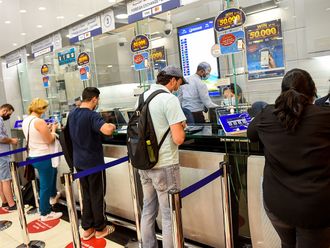

_resources1_16a4a1613d8_small.jpg)




